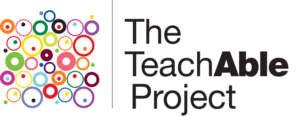Assistive Technology
AT In Inclusive Classrooms: What Problem Are We Trying To Solve?
From the authors: ‘As inclusive classrooms proliferate nationwide and as schools and families become ever more accepting of, knowledgeable about and proficient in the use of assistive and other technology, familiarity is breeding a new approach but not necessarily sound approach to technology use by all parties, according to one prominent inclusion consultant and teacher, Paula Kluth.’
- Date: 2011
- Publisher: Family Center on Technology and Disability
- Format: Online Resource
- Audience: Teachers, Education Stakeholders
- Topic: Assistive technology
- Source: http://www.fctd.info/
Addressing Assistive Technology Needs In Special Education
From the author: ‘Assistive technology is critical to maximize the functional skills of the person with a physical disability at home, work, and school. As assistive devices become increasingly complex and expensive and more options are available, the need for an assistive technology specialist is enhanced. Recent regulations and advances in technology are affecting the type, quality, and comprehensiveness of assistive technology service provision and need for assistive technology specialists. The occupational therapist’s role as an assistive technology specialist is illustrated in an example of an assistive technology program within a special education setting.’
- Date: 1992
- Author: Nancy E. Shuster
- Publisher: American Occupational Therapy Association/AOTA Press
- Format: Online Resource
- Audience: Teachers, Education Stakeholders
- Topic: Assistive technology
- Source: https://ajot.aota.org/article.aspx?articleid=1876449&resultClick=3
Dragon Naturally Speaking
From the publishers: ‘Dragon speech recognition software makes it easier for anyone to use a computer. You talk, and it types. Use your voice to create and edit documents or emails, launch applications, open files, control your mouse, and more. Quickly and easily capture your thoughts and ideas while Dragon helps you get more done faster.’
- Publisher: Nuance
- Format: Software
- Audience: Teachers, Education Stakeholders
- Topic: Assistive technology
- Source: https://www.nuance.com/dragon.html
Effect Of Assistive Technology In A Public School Setting
From the authors: ‘The Individuals With Disabilities Education Improvement Act of 2004 (IDEA) requires assistive technology (AT) be considered at the yearly individualized education program (IEP) meeting of every student in special education. IDEA also directs that AT be implemented on the basis of peer-reviewed literature despite a paucity of research on AT’s effectiveness in the public schools. This repeated- measures quasi-experimental study explored AT’s effect in a public school special education setting.’
- Date: 2010
- Author: Anne H. Watson, Max Ito, Roger O. Smith, Lori T. Anderson
- Publisher: American Occupational Therapy Association/AOTA Press
- Format: Online Resource
- Audience: Teachers, Education Stakeholders
- Topic: Assistive technology
- Source: https://ajot.aota.org/article.aspx?articleid=1862649
Kurzweil Assistive Technology Solutions
From the publishers: ‘With Kurzweil assistive technology solutions, special education and general education students get the support they need to achieve academic success. Learners who struggle with dyslexia and other learning disabilities in school, at home or in the work place can attain academic success with the implementation of this software tool.’
- Publisher: Kurzweil Educational Systems
- Format: Software
- Audience: Teachers, Education Stakeholders
- Topic: Assistive technology
- Source: https://www.kurzweiledu.com/individuals.html
Premier Assistive Canada
From the company: ‘Premier Literacy, a leader in the field of learning technology, offers complete and affordable reading and writing solutions. Premier is providing valuable tools for life by offering programs that recognize, validate and accommodate user needs. Innovation, affordability and portability are the defining elements of Premier products.’
- Publisher: Premier Assistive Canada, Inc.
- Format: Software
- Audience: Teachers, Education Stakeholders
- Topic: Assistive technology
- Source: http://www.readingmadeeasy.ca/
